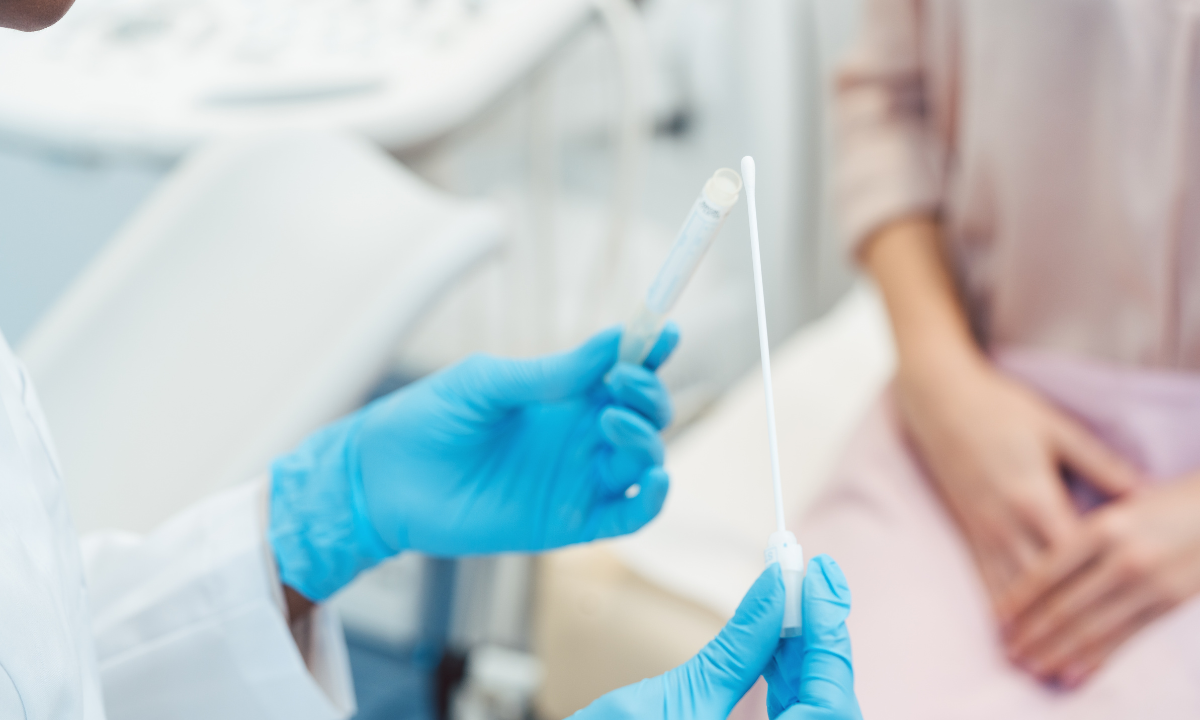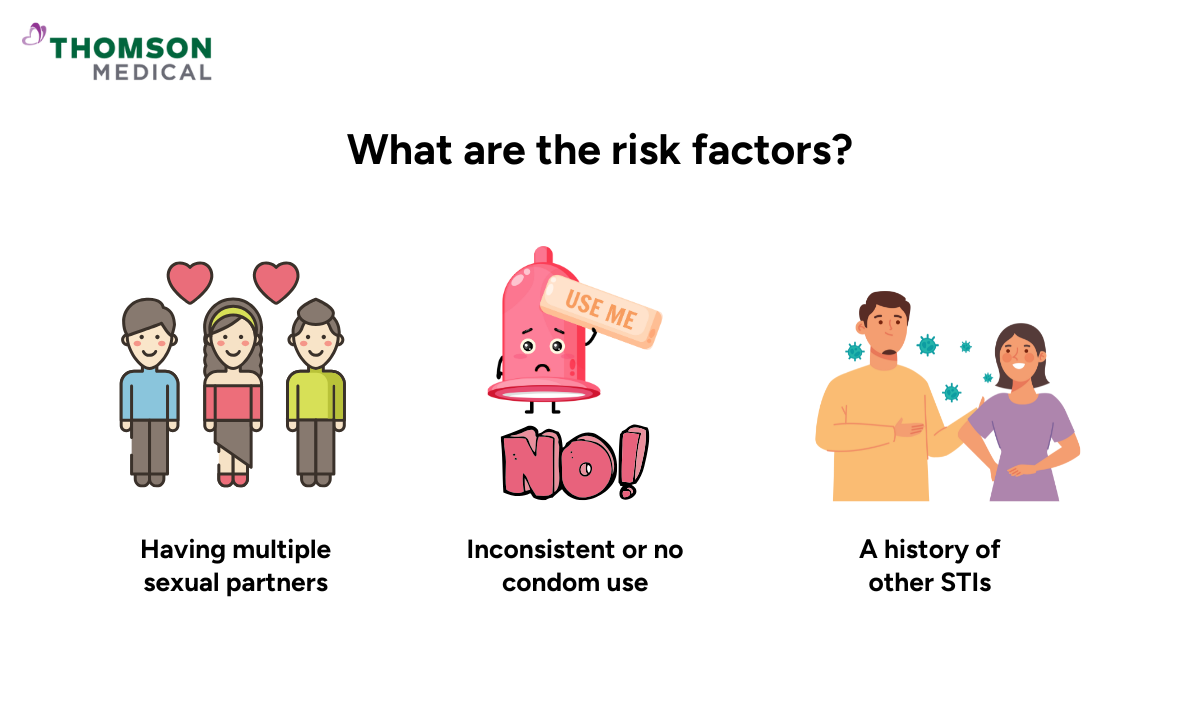Trichomoniasis is very common, but the symptoms are usually mild and difficult to notice. That’s why many people overlook it. Some don’t even know they get the infection, while others believe it disappears on its own. It’s normal to feel hesitant when it comes to sexual health. However, avoiding treatment can have consequences, without proper treatment, trichomoniasis can persist for years and lead to complications.
Learning about trichomoniasis – its signs, how it spreads, and how it can be treated – is an important step you can take to protect both your health and your loved one.
What is trichomoniasis (trich)?
Trichomoniasis, often called trich, is a sexually transmitted infection (STI) caused by a microscopic parasite known as Trichomonas vaginalis. Unlike bacteria or viruses, this parasite is a single-celled organism that lives in the genital or urinary tract. It is passed from one person to another during sexual activity.
Because the parasite often causes no symptoms, many people do not even realise they are carrying it, making trichomoniasis easily spreadable.
How common is trichomoniasis?
Trichomoniasis is one of the most common STIs worldwide.

The World Health Organization (WHO) estimates that millions of new cases occur every year. In many countries, it is even more widespread than infections such as gonorrhoea or syphilis.
Although trichomoniasis is common, it is often underdiagnosed because many people don’t notice the symptoms. In some cases, they assume that mild irritation is caused by something else. So the parasite can continue to grow silently without being detected.
Women are diagnosed with trich more often than men, partly because they’re more likely to notice symptoms and seek medical care.
What are the symptoms of trichomoniasis?
Trichomoniasis appears in both men and women with different symptoms. Knowing the symptoms of trichomoniasis allows you to assess the risk and consult your doctor to protect your overall sexual health.
Signs of trichomoniasis in males
In men, trichomoniasis usually causes subtle symptoms, including:
Mild burning or itching inside the penis
Discomfort after urination or ejaculation
A thin discharge from the penis
Many men may not notice them. They assume these signs are temporary and will go away soon. This is concerning because without realising the parasite, men can carry the infection and unknowingly pass it to their partner.
Signs of trichomoniasis in females
Unlike men, women often show more noticeable symptoms. Common signs include vaginal itching, irritation, and discomfort during intercourse.
The vaginal discharge may also change. It becomes frothy and yellow-green, and you may notice an unpleasant vaginal smell. Some women also experience pain when urinating or notice redness or swelling around the genital area and general pelvic discomfort.
However, because these symptoms can come and go, many women mistakenly think the infection has cleared on its own. While in fact, trichomoniasis doesn't go away without treatment and can persist for years.
What causes the condition?
Trichomoniasis is caused by the parasite Trichomonas vaginalis. In most cases, it spreads through sexual contact, including vaginal intercourse.
Unlike some infections, the parasite cannot survive well outside the human body. So you will not get infected through skin-to-skin contact or casual contact, such as sharing toilets, towels, or a swimming pool.
The infection passes from person to person when the parasite is transferred during sexual activity. Even if your partner is infected but doesn’t show any symptoms, you can still be at risk.
What are the risk factors?

Trichomoniasis is common, so anyone who is sexually active can contract the infection. However, certain factors can increase the risk:
These include:
Having multiple sexual partners
Inconsistent or no condom use
A history of other STIs
Women are more likely to be diagnosed with trichomoniasis than men. This difference may be because of biological factors and the fact that women tend to show noticeable symptoms. In men, the infection usually causes subtle symptoms, so it can go unnoticed unless they get tested.
If you notice any changes in your body, especially in the genital sites, schedule an appointment with Thomson Medical today for further testing and personalised care. Early testing not only helps detect trichomoniasis before it causes complications but also prevents it from spreading to your partner.
Our sexual health specialists
Loading...
How is it diagnosed?
Testing is the only reliable way to diagnose trichomoniasis because its symptoms can be vague.
For women:
Your healthcare provider will take a sample of vaginal fluid and examine it under a microscope. In some cases, they will send it for a more sensitive laboratory test that detects the parasite’s DNA
For men:
Your doctor will use a urine sample or a swab from the urethra for diagnosis
Because the infection can remain hidden, getting tested is especially important for people with new or multiple sexual partners. It’s also helpful to get tested if you’re experiencing unusual genital symptoms.
Diagnosis and testing for trichomoniasis are straightforward, so there’s nothing to worry about. Your doctor will walk you through each step to make sure you feel comfortable.
How is trichomoniasis managed or treated?
Doctors usually prescribe oral antibiotics to treat trich, including metronidazole or tinidazole, which are effective at eliminating the parasite. Both you and your partner should get treated at the same time, even if only one of you has symptoms. This helps prevent the infection from coming back and spreading again.
It is also important to avoid sexual activity until you’ve finished the treatment and all your symptoms have resolved. Most people start to feel better within a week after taking antibiotics, and the infection usually clears after the medication is completed. In case the symptoms don’t improve, it’s best to consult your doctor for medical advice.
Without treatment, the infection can last for months or years and may increase the risk of other health problems, including HIV.
Can trichomoniasis be prevented?
Trichomoniasis can be prevented in similar ways to other STIs.
- The most effective way is to use condoms consistently and correctly during sex, because they can significantly lower the chance of transmission.
- Reducing the number of sexual partners and getting regular STI tests are also important steps in decreasing the risk of exposure and detecting the infection early. This matters especially when many people have trichomoniasis without any symptoms.
- Openly communicating with your sexual partners about sexual health and testing can help reduce the spread.
Trichomoniasis is treatable, but without proper care, it can increase the risk of getting other infections. That’s why actively protecting yourself by practising safer sex and getting regular check-ups is essential.
For confidential STI testing and personalised advice to help protect your sexual health, schedule an appointment with Thomson Medical.
FAQ
Can trichomoniasis be caused by poor hygiene?
Trichomoniasis isn’t caused by poor hygiene. Instead, it’s an STI that results from a parasite called Trichomonas vaginalis. While maintaining good personal hygiene is important for overall health, it doesn’t prevent or cause this infection. The parasite spreads through sexual contact, not from uncleanliness, public toilets, or dirty clothing.
Because trichomoniasis causes subtle and sometimes no symptoms, many people who are infected pass it unknowingly to their partners.
Can trichomoniasis go away on its own?
Trichomoniasis doesn’t usually go away on its own. Without treatment, the parasite can stay in the genital tract for months and even years. During this time, it continues to cause irritation and may increase the risk of getting or transmitting other infections, including HIV.
The only reliable way to clear the infection is through prescription antibiotics. For this reason, if you think you may have trichomonas vaginalis, you should see a healthcare provider as soon as possible rather than waiting for it to disappear.
What can I expect if I have this condition?
If you are diagnosed with trichomoniasis, your doctor will prescribe antibiotics that can cure the infection quickly. To get the best results, you should complete the medication as instructed and ensure your sexual partner is treated as well. Otherwise, reinfection can occur.
During treatment, you will be advised to avoid sexual activity until both you and your partner are fully cleared. Most people recover without long-term issue after treatment. However, it is possible to get reinfected if you are exposed again later.
Is trichomoniasis a female sexually transmitted disease (STD)?
Trichomoniasis isn’t a female-only STD. In fact, both men and women can contract it and pass it to their partners. However, women are more often diagnosed because they are more likely to experience noticeable symptoms such as vaginal discharge, itching, or irritation. Men can carry the infection silently with only mild or even no symptoms.
How does trichomoniasis (trich) affect pregnancy?
Trichomoniasis during pregnancy can lead to some consequences. If you are pregnant with trichomoniasis, you are at high risk of premature rupture of membranes, early delivery, giving birth to babies with low birth weight, or other pregnancy complications. The infection can also cause discomfort during pregnancy, such as vaginal irritation and discharge.
However, safe and effective medications are available, and your healthcare providers will prescribe them carefully to protect you and your baby.
How long does trichomoniasis last?
The duration of trichomoniasis depends entirely on whether it is treated. With proper antibiotics, the infection usually clears within a week. If left untreated, the parasite can stay in the body for years, even if symptoms fade or never appear. If you don't get treated, you can still spread the infection to your partners, even when you think it's gone.
The information provided is intended for general guidance only and should not be considered medical advice. For personalised recommendations and tailored advice based on your unique situations, please consult a specialist at Thomson Medical. Schedule an appointment with Thomson Medical today.
For more information, contact us:
Thomson Specialists (Women's Health)
Thomson Women's Clinic (TWC)
- Novena:
6592 6686 (Call), 8611 8986 (WA) - Bukit Batok:
6569 0668 (Call), 8686 3525 (WA) - Choa Chu Kang:
6893 1227 (Call), 8282 1796 (WA) Jurong:
6262 8588 (Call), 6262 8588 (WA)- Katong (female doctor):
6970 2272 (Call), 8611 9020 (WA) - Punggol:
6243 6843 (Call), 8811 0328 (WA) - Sembawang: 6753 5228
- Sengkang: 6388 8125
- Serangoon (female doctor): 6382 3313
- Tampines: 6857 6266
- Tiong Bahru: 6276 1525
